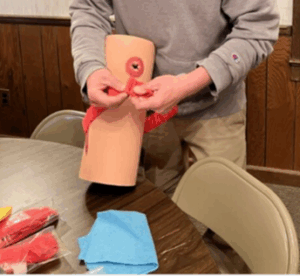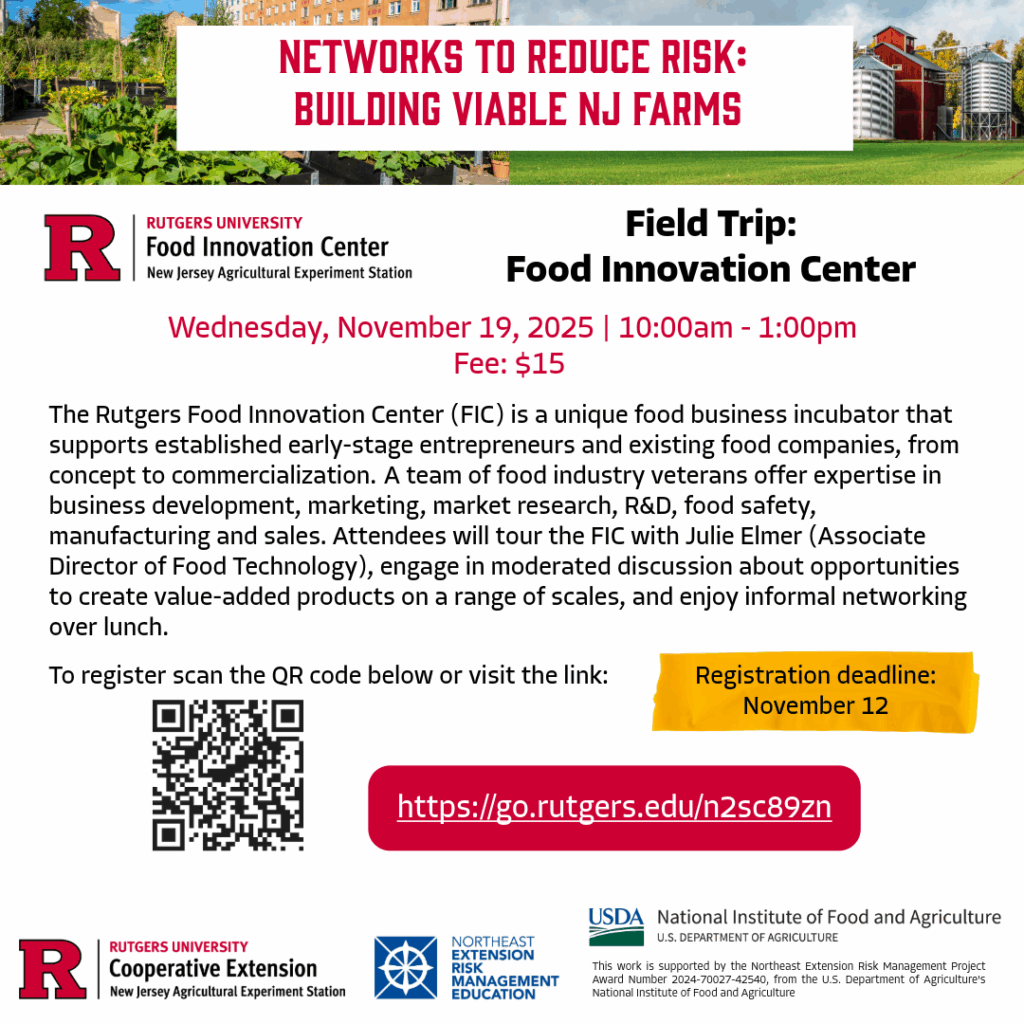The PSA Grower Training Course is one way to satisfy the FSMA Produce Safety Rule requirement outlined in § 112.22(c) that requires ‘At least one supervisor or responsible party for your farm must have successfully completed food safety training at least equivalent to that received under a standardized curriculum recognized as adequate by the Food and Drug Administration.’
You’ll need to attend both days to receive a certificate, and you must always have a camera on during the training according to the Produce Safety Alliance Online Training Policies.
For more information and to sign up go to: Our Trainings – Rutgers On-Farm Food Safety [onfarmfoodsafety.rutgers.edu] Registration closes November 14th.
Not sure if your farm falls under the Produce Safety Rule: Take this survey to find out: https://rutgers.ca1.qualtrics.com/jfe/form/SV_4IagP1mbPyrp42N [rutgers.ca1.qualtrics.com]




